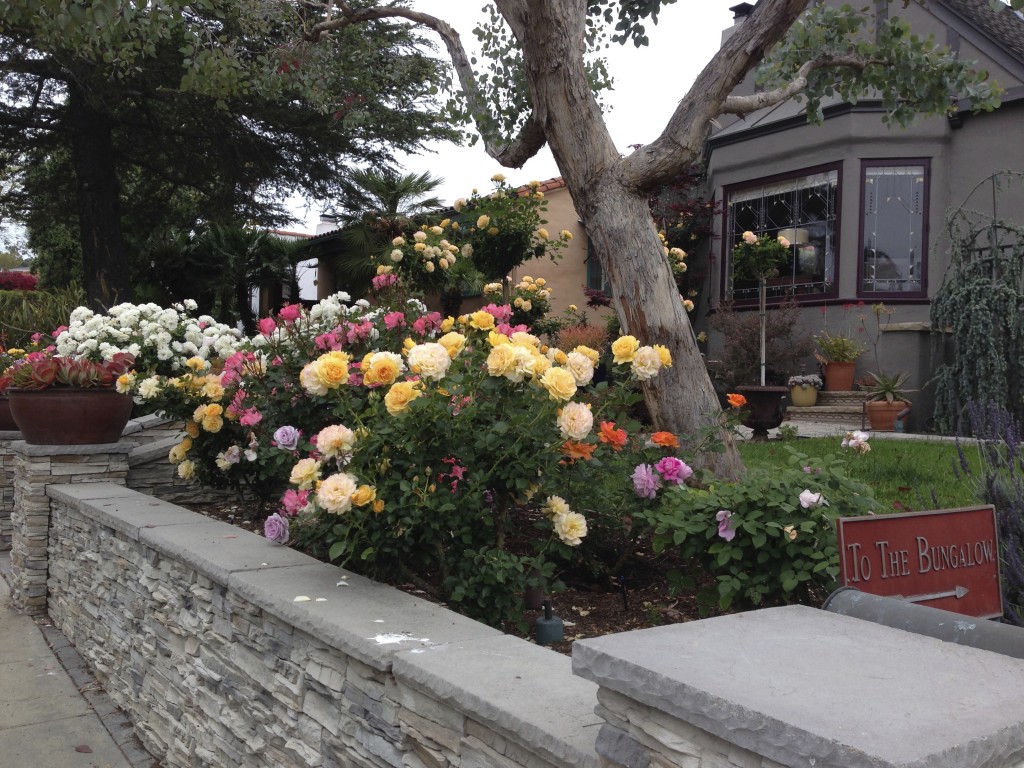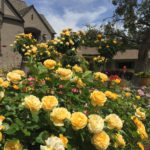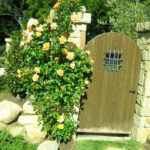 Sometimes it can be a challenge to grow healthy roses in Santa Barbara. They don’t like our seasonal “May Gray”and certainly resent our “June Gloom.” Also, if we have a mild winter, the bushes don’t go fully dormant and can’t get enough rest before performing again in the spring. It’s surprising too, that pruning them back improperly in the winter and even cutting blooms for the house or deadheading the wrong way can set your roses back and make for a longer than necessary down time between blooms.
Sometimes it can be a challenge to grow healthy roses in Santa Barbara. They don’t like our seasonal “May Gray”and certainly resent our “June Gloom.” Also, if we have a mild winter, the bushes don’t go fully dormant and can’t get enough rest before performing again in the spring. It’s surprising too, that pruning them back improperly in the winter and even cutting blooms for the house or deadheading the wrong way can set your roses back and make for a longer than necessary down time between blooms.
Here’s a list of some of the things I can do for your roses.
• Evaluate the condition of your rose bushes. I can tell you which plants may need to be replaced due to diseases such as crown gall, lack of performance or just plain old age.
• Fertilize and mulch. I am available to feed and mulch your roses with organic and earth-friendly products as needed. After the first big feed in March, I let the roses tell me when the next meal should be. In between large meals, I like to follow up with an occasional dose of fish emulsion or other snack. I can also install or recommend the best products for mulching the ground beneath your plants.
• Prune and deadhead. Some folks like me to come by once a year in mid-January to give their roses a proper annual pruning. I prune each bush differently depending on whether it is a climber, hybrid tea or floribunda. I also custom prune to the needs and condition of each individual rose. Usually the first pruning is corrective and more extensive than the subsequent years depending on the care that the plants receive throughout the year.
Other people prefer that I come by monthly or even weekly to deadhead or cut the flowers for their homes.
In addition to that first corrective pruning, I find that a less severe pruning and sometimes defoliating at the end of the summer jump starts some of the more tired and less disease resistant plants. This makes for a fall bloom that often rivals your big spring bloom.
• Suggest and practice earth-friendly disease control by choosing disease-resistant roses, feeding with non-chemical fertilizers, proper & thoughtful pruning & deadheading, and mulching with organic compost. If spraying is needed— less toxic, biological controls can be recommended.















